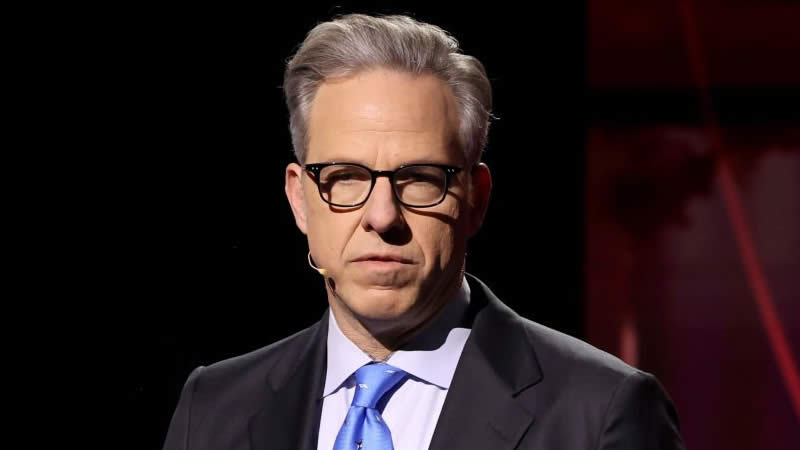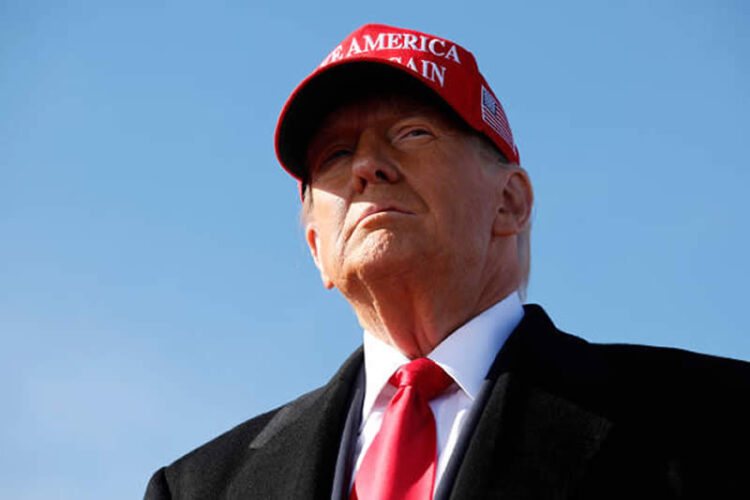Tapper Exposes GOP Hypocrisy as Canada Hits Back at Trump’s Tariffs

(Photo by Kevin Mazur/Getty Images for Warner Bros. Discovery)
Within an hour of a deal between the U.S. and Canada to delay tariffs, CNN’s Jake Tapper took aim at Republican leaders whose states would have been hit hardest by Canada’s retaliatory measures.
The trade dispute erupted after President Donald Trump announced a 25% tariff on Canadian imports over the weekend, prompting Canadian Prime Minister Justin Trudeau to threaten countermeasures of his own. Following a phone call on Monday morning, the two leaders reached a temporary agreement similar to the one Trump made with Mexico, postponing tariffs for one month.
While covering the developments, Tapper highlighted the financial impact of Trump’s trade war on American households. Trump’s decision to punish Canada for allegedly allowing fentanyl to come into the United States will cost the median American household about $600 extra per year,” Tapper reported.
He then pointed out that Canada’s planned retaliatory tariffs were carefully targeted at key U.S. exports from Republican-led states. “Canada is announcing its own retaliatory tariffs on U.S.-made products with a focus on high-dollar exports from Republican states such as orange juice from Marco Rubio’s Florida and bourbon from Mitch McConnell’s Kentucky,” Tapper noted.
As trade tensions escalated, some Republican lawmakers publicly expressed concerns about the impact of Trump’s tariffs on their states. Senator Chuck Grassley (R-IA) urged Trump to reconsider imposing tariffs on potash, a key agricultural fertilizer imported primarily from Canada.

“Biden inflation increased the input cost to farming by 20%, including particularly high prices on fertilizer. So I plead w[ith] President Trump to exempt potash from the tariff because family farmers get most of our potash from Canada,” Grassley posted on social media.
Meanwhile, Trump also struck a last-minute agreement with Mexico after speaking with Mexican President Claudia Sheinbaum. In exchange for delaying the 25% tariff on Mexican goods, Sheinbaum agreed to deploy 10,000 National Guard troops to the border to curb fentanyl trafficking.
While the tariffs are intended to increase government revenue and offset Trump’s yet-to-pass tax cuts, the economic impact is already causing concern among economists and consumers. Tapper noted, “While Trump’s tariffs are designed to increase revenue for the U.S. government, and, in theory, offset his proposed but not yet passed tax cuts, Mr. Trump did concede on Monday that Americans will, quote, ‘feel some pain.'”
According to Forbes, Trump’s tariff plan has been part of his long-term economic strategy, viewing them as a key revenue source. “This was confirmed by Trump’s January 20 inaugural address, in which he touted tariffs as the alternative to ‘taxing our citizens to enrich other countries,'” Forbes reported.
As trade negotiations continue, questions remain over whether Trump’s tariffs will provide the economic benefits he promises—or simply drive up costs for American consumers and businesses.


